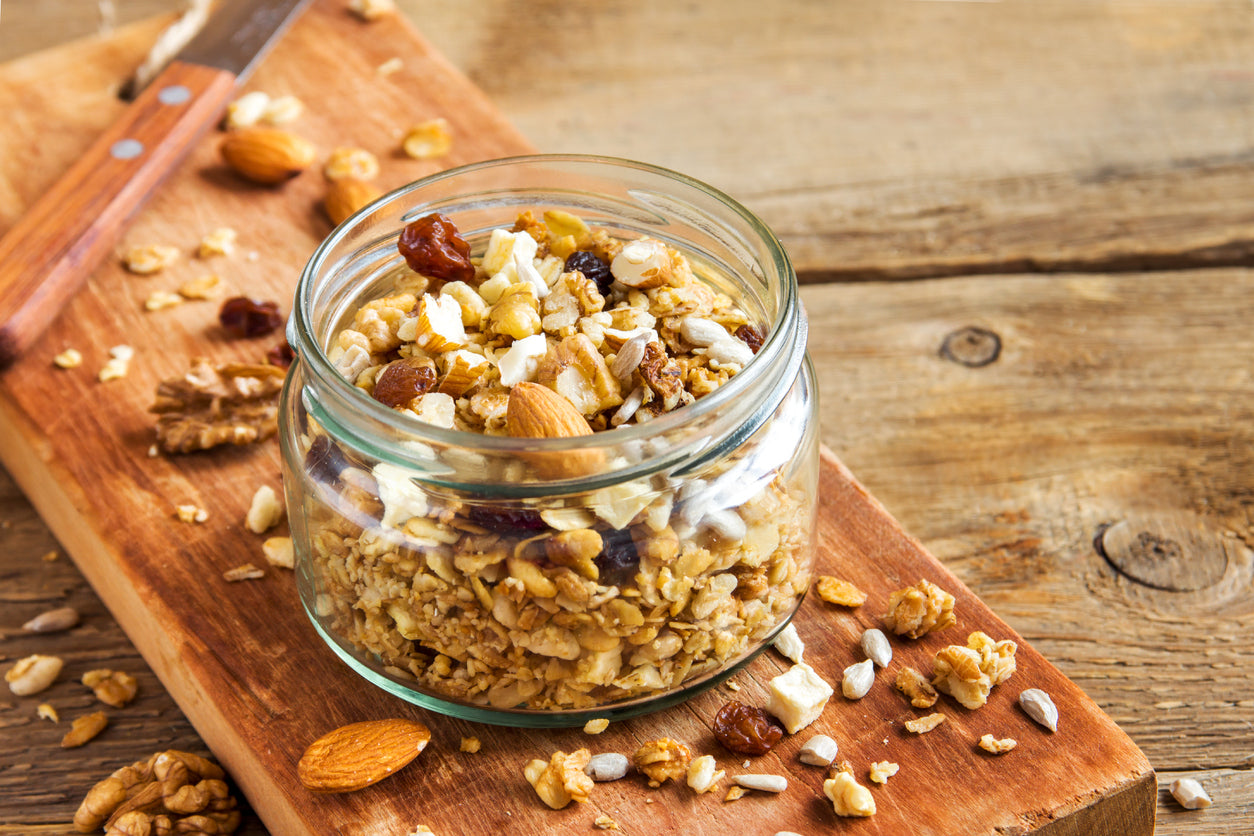Multi-faceted manganese - why this trace mineral is a “must-have” for strong bones

For a mineral that accomplishes so many essential functions in the body, manganese - which may lack the "name recognition" of more common substances like magnesium and calcium - is surprisingly little-known. But this nutrient, found in whole grains, nuts, and seeds, is urgently needed for overall health and well-being.
Like copper and selenium, manganese is a trace mineral, meaning it is present in the body only in tiny amounts. But, it would be a mistake to underestimate its importance. It's difficult to think of a body system that doesn't benefit from manganese! So, let's take a look at the many ways in which manganese supports health - and see how we can stay at optimal levels of this hard-working trace mineral.
Manganese is the ultimate "team player"
When it comes to manganese's "to-do" list, the tasks are numerous and varied. Manganese is vital for the formation of bones and connective tissues and also helps with the clotting of blood, the production of sex hormones, and the metabolism of fats and carbohydrates. In addition, it is indispensable for proper brain and nerve function, blood sugar regulation, and the health of the immune system. Finally, manganese helps with the absorption of bone-building calcium and promotes the efficient utilization of essential nutrients, including thiamine, choline, vitamin C, and vitamin E.
Along with these tasks, manganese serves one more vital function. It is a critical component of an antioxidant known as superoxide dismutase, which hunts down and neutralizes superoxide - among the most dangerous free radicals. (Scientists say that excessive amounts of unstable free radical molecules can damage cell DNA and set the stage for conditions like heart disease, cancer, and accelerated aging). So clearly, when it comes to promoting health, manganese could be described as one of the "good guys!"
Manganese promotes healthy bones and joints
As a component of superoxide dismutase, manganese has inherent antioxidant and anti-inflammatory effects. When combined with glucosamine and chondroitin, manganese has been shown to reduce the pain and inflammation of osteoarthritis, a chronic degenerative joint disease. And that's not all.
Manganese supplementation is also believed to increase bone mineral density – good news for an aging population. In a study published in the Journal of Nutrition, postmenopausal women given a combination of calcium, zinc, manganese, and copper experienced significantly less spinal bone loss than a control group that received calcium alone. A separate study, published a decade later, supported these findings. A manganese-containing blend of calcium and trace minerals was shown to improve bone mineral density and bone mass in women with brittle bones.
The International Osteoporosis Foundation reports that as many as 33 percent of women over age 50 (and 20 percent of men in that age group) will break a bone due to osteoporosis. This age-related condition causes bones to become porous and brittle. By supporting bone health, manganese may help protect against debilitating fractures.
Manganese may speed wound healing
In one study involving over 1,200 participants with chronic wounds, twelve weeks of a topical combination of calcium, zinc, and manganese improved the healing process. The scientists noted that 95 percent of all wounds improved substantially - with over half resolving completely. The team also reported that the need for fresh dressings sharply decreased. Experts believe that manganese supports healing by helping to produce the amino acid proline, which is needed for the production of collagen.
Ensure adequate manganese intake with whole grains and legumes
According to the Office of Dietary Supplements, the Adequate Intake of manganese for adults is 1.8 mg daily for females and 2.3 mg for males. However, experts estimate that as many as 37 percent of Americans don't get this amount through their daily diets.
Mussels, clams, and oysters are excellent sources of manganese, with the USDA reporting that three ounces of blue-cooked mussels contain a whopping 5.8 mg. You can also boost your dietary manganese intake with whole wheat bread, pecans, hazelnuts, lentils, oatmeal, and brown rice. Even modest amounts of manganese, such as the 0.1 mg found in an apple or a half-cup of asparagus, can help you reach your daily goal.
Manganese is also available as a supplement, as part of a multivitamin formulation. Before supplementing, though, consult your integrative doctor. Too much manganese can be harmful, with abnormally high concentrations in the brain linked to neurological problems, tremors, and convulsions. However, manganese toxicity is extremely unlikely to occur from the amounts found in food. (Incidentally, the Office of Dietary Supplements notes that the total amount of manganese through foods and supplements should not exceed 10 mg a day).
When it comes to promoting health and overall well-being, manganese "means business." It's important not to skimp on this small-but-mighty trace mineral. Eating a healthy diet rich in whole grains, nuts and seeds can help ensure that you get enough of it.
Sources for this article include:






